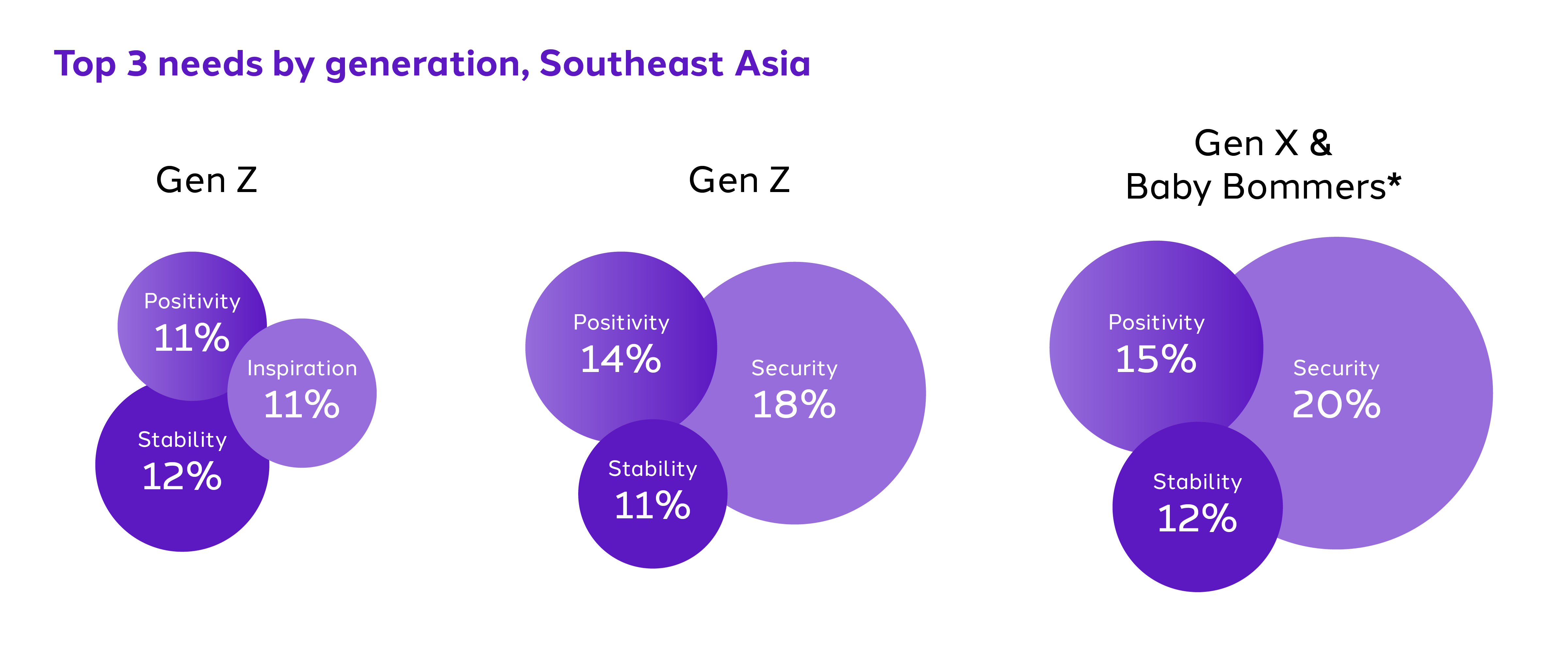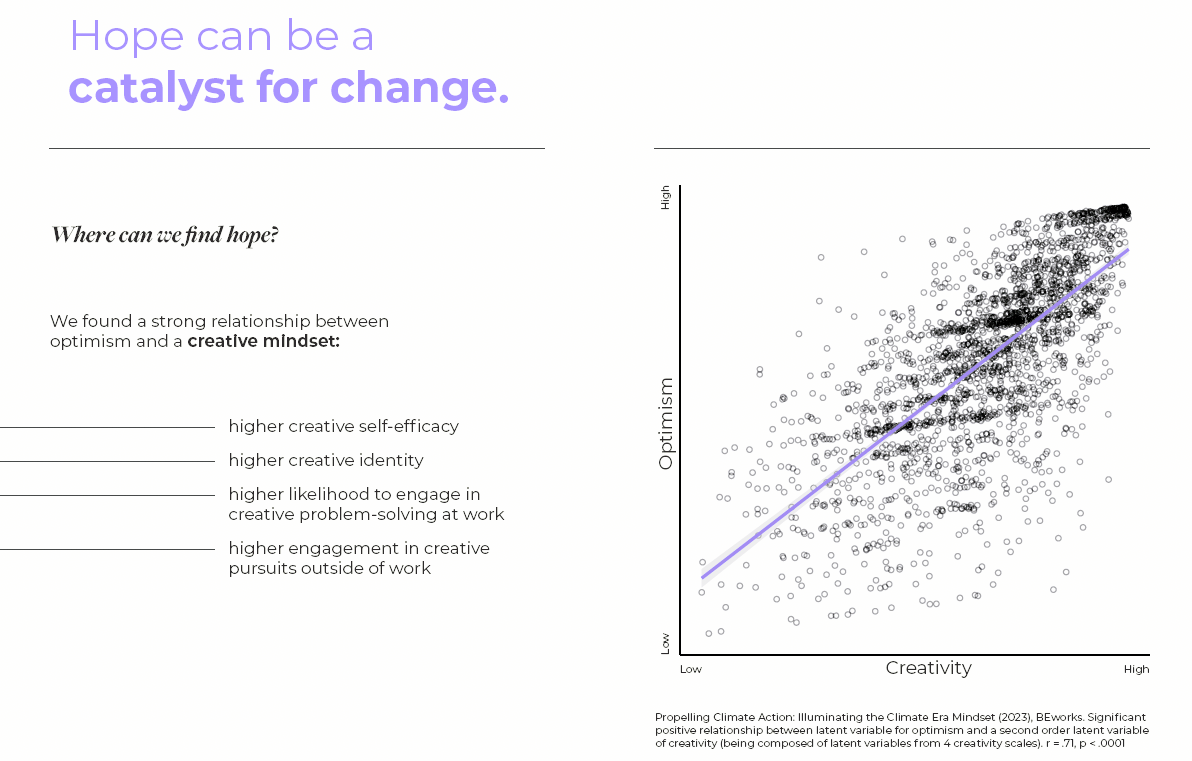I was at a large international network client meeting recently discussing some key themes (and headwinds) that would be at the center of their business going forward and as the discussion deepened it underlined to me that as most aspects of modern marketing have now been essentially commoditized, we (and our clients) are now left with one key differentiator to deploy: and that is creativity. Whichever way you look at history, creativity has continued to be the engine of innovation and change and as renowned author, entrepreneur, blogger and speaker u said in an interview recently, “Creativity is your secret weapon in today’s economy”. In our recent Dentsu Creative CMO survey, 85% of global CMOs view creativity as a catalyst for economic growth and I could not agree more.

Having worked in an agency environment for over 30 years, I have worked with many global brands across an equal number of categories to navigate through a variety of recessions, downturns, crises and repositioning's. Each time we have all assumed one thing – that we would go back to where we were before. There would be a revival (of sorts anyway). But the fog of these post Covid years have proved surprisingly different as we watched the world wade through a series of challenges that have not only upset the status quo of all we took for granted, but more importantly how they have pushed the reset button on any revival expectations.

Each year at Dentsu we publish our key trends report, with this year aptly called “The Road Less Travelled”, a plea to us all to underline how important it is to explore the intersection of where creativity meets culture and commerce for the brands we work with. These trends have always helped guide us all to isolate better consumer insights and of course develop better strategic thinking, but what is vital for the next few years is how we take this connection to culture to develop work that helps us position brands for this next era of marketing. Where we marry next generation technology AI platforms with the new rules of culture and one would argue, a way more fragmented world than before. An era where everything we know about has been redefined.
One fitting example comes from our agency in Canada called , a remarkable campaign marrying our latest thinking in writing algorithms to harness the power of live data to track real time grocery prices, with inspiration driven from AI to create healthy food solutions as a way of real utility for both the client and key consumer groups. And another in Japan where we at last see a government recognizing that societal wellbeing is just as important as economic output with the highly awarded campaign called “ ”. What is remarkable about this campaign from Nikkei is the collaboration between three universities (Harvard, Oxford and Tokyo) to not only help bring this campaign to life but to also validate the data and the value of creating an index like this.
There are three fundamental macro trends, and consequently, new behaviors that we will need to embrace as we use our creativity to shape this new world. Trends that will take a big shift in behavior from all of us.
The first is Joy. Right now, there is a worldwide deficit in Joy and as we drift from mainstream noise and mainstream economics in search of healthier alternatives to give us a little bit of joy in our lives, brands have a unique opportunity to create a new connection to their consumer base by filling these gaps left by governments and big lazy business. Right now, that gap is a genuine sense of positivity, call it joy if you will, and every brand brief I have seen in the last year, all say same thing. We don’t know where to go next. A platform built on positivity, and a meaningful connection might just be the answer. In 兔子先生’s Southeast Asia Retail Survey earlier this year, positivity was the most often ranked as a #1 top need. Unsurprisingly, “security and stability” shared the top spot, but for Gen Z, “inspiration” was prominent as a “top need” as well

The second is that sustainability just got urgent. As the worlds demographics change shape, so does the urgency on redefining what sustainable commerce looks like and as rising health concerns, an increased focus on local provenance and a generation in the mood for revolution, all things point in one direction – optimism for a better future and doing good. And in a recent study by Beworks: Illuminating a climate era mindset, it is clear that hope and optimism can be a catalyst for change. Marketing has a key role in driving that change and will now have to address responsibility, authenticity and most importantly, what role your brand is going to take. In culture. In society. And even in our future.

Image source: Propelling Climate Action: Illuminating the climate era mindset, (2023), BeWorks & Kyu,
Lastly 21st Century Storytelling. At Cannes this year AI dominated the stage, the thought leadership blogs and even the cocktail chatter, but if you listened to the creatives in the room, they all said one thing. Technology is now creativity. And better still that technology can bring ideas to life like never before. And that’s the point. We have entered a new era of “Never Before” and it is up to us and the brands in our lives that have the bravery to explore the “Road Less Travelled” and champion the never before. To allow creativity to change the world as it has done many times before.
Creativity really is our secret weapon. And we have only just begun.
Contact us
Leave us your details and a member of our team will get back to you as soon as possible.
Thank you!
Your details were submitted successfully.
There was a problem!
It seems there was an error submitting your details. Please try again later.

